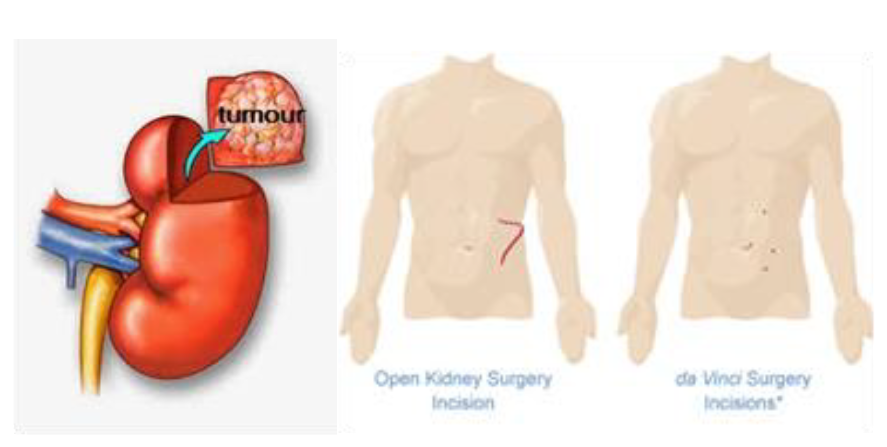Nephrectomy
India
-
Our Price USD 3960
-
Hospital Price USD 4400
-
You Save : USD 440
Booking Amount: USD 396. Pay Remaining 90% at the hospital.
Book NowAdditional Credit
Among the important extras we offer as part of the Additional Credit are the following:
-
Site Tourism For The Patient & Attendant
-
Airport Pick & Drop Service
-
Ambulance service at airport
-
Priority appointments with The Doctor
-
Cancel Easily Anytime with Full Refund
-
Room Upgradation
-
Free Online Doctor Consultation Valued at USD 20
-
Free hotel Stay for 5 to 7 days Accordingly
-
Welcome Kit at Arrival
-
Interpreter
-
Medical Visa Assistance
What is Included?
- Doctor consultation charges
- Lab tests and diagnostic charges
- Room charges inside hospital during the procedure
- Surgeon Fee
- Cost of implant
- Nursing charges
- Hospital surgery suite charges
- Anesthesia charges
- Routine medicines and routine consumables (bandages, dressings etc.)
- Food and Beverages inside hospital stay for patient and one attendant.
What is not Included?
- Extra Radiology Investigations
- Healthcare Professionals Charges of other consultations.
- Other Requested Services such as Laundry etc.
- Additional Pharmaceutical Products and Medicines After Discharge from Hospital.
- Management of Conditions Unrelated to Procedures or Pre-Existing.
- The cost of any additional implants will be in addition to the package cost.
Package Description
Nephrectomy Partial Open:
An open partial nephrectomy is a procedure that removes kidney cancer along with a rim of healthy kidney tissue around it. The kidney is repaired after the malignancy and the rim of normal kidney tissue are removed. The objective is to maintain as much renal function as feasible.
Kidney cancer that has not progressed to other tissues is treated with partial nephrectomy. When at all feasible, it is advised. The goal is to remove the area of the kidney that has abnormally developing cells (tumour), while leaving as much of the healthy kidney as feasible.
Disease Overview:
Kidney cancer
The abnormal proliferation of cells in kidney tissue is known as kidney cancer. These cells eventually join together to create a tumour. Cancer develops when something causes a change in the cells, causing them to divide uncontrollably. A cancerous or malignant tumour can spread to other tissues and important organs (metastasize).
Renal cell carcinoma is the most prevalent kind of kidney cancer. There are, however, other forms of kidney cancer, including:
Renal cell carcinoma (RCC) is the most prevalent kind of kidney cancer in adults, accounting for around 85% of all cases. Renal cell carcinoma normally starts off as a solitary tumour in one kidney, but it can spread to both. Renal cell carcinoma starts in the cells that lining the tiny tubes that make up the kidney's nephrons. (The term "carcinoma" refers to cancer that originates in the cells that line or cover an organ, and "renal" is the Latin word for kidney.)
Transitional cell carcinoma is a kind of kidney cancer that accounts for 6% to 7% of all kidney malignancies. The ureter links to the major section of the kidney, and thus cancer generally starts there. The renal pelvis is the name for this region. The ureters and bladder can also be affected by transitional cell cancer.
Renal sarcoma: Renal sarcoma is the least frequent kind of kidney cancer, accounting for about 1% of all cases. It starts in the connective tissues of the kidneys and can spread to neighbouring organs and bones if not addressed.
Wilms' tumour is the most frequent kind of paediatric kidney cancer. It is responsible for around 5% of all kidney malignancies.
Kidney cancer stages
Stage I: The tumour is 7 cm in diameter or less and exclusively affects the kidney. It hasn't spread to lymph nodes or other areas of the body. (Infection-fighting cells are stored in lymph nodes, which are little "filters" that catch germs and cancer cells.)
Stage II: The tumour has grown to a diameter of more than 7 cm but is still solely in the kidney. It hasn't spread to lymph nodes or other areas of the body.
Stage III: The tumor has progressed to important blood arteries such as the renal vein and inferior vena cava, as well as surrounding tissue and lymph nodes.
Stage IV: The tumor has progressed to the adrenal gland (the tiny gland that lies on top of the kidney), distant lymph nodes, or other organs outside of the kidney.
Tumors are also graded, which is a method of assigning a numerical value to a tumor depending on how aberrant its cells seem. Grading a tumor may also inform a doctor how quickly the tumor will develop. High-grade tumours are those that include cells that don't appear like normal cells and divide quickly. Cancers with a higher grade likely to develop and spread faster than tumours with a lower grade.
Disease Signs and Symptoms:
In the early stages of kidney cancer, there may be no apparent symptoms. Symptoms, on the other hand, may arise as the tumour grows. As a result, kidney cancer is frequently not detected until it has spread.
The following are some of the signs and symptoms of kidney cancer:
- Urine with blood (a condition called hematuria).
- A lump or mass in the region of the kidneys.
- A nagging pain in the side.
- Tiredness.
- A overall feeling of being unwell.
- Appetite and/or weight loss
- Fever of a low intensity.
- Bone ache.
- Blood pressure that is too high.
- Anemia is a disorder in which a person (a condition that results from not having enough red blood cells).
Disease Causes:
Although the specific aetiology of kidney cancer is unknown, there are a number of risk factors that have been found. A risk factor is a quality or action that raises your chances of getting sick. Kidney cancer is linked to a number of variables, including:
- Smoking: Smokers are more likely to get kidney cancer. Furthermore, the longer someone smokes, the greater the danger.
- Obesity is linked to a higher risk of kidney cancer. Furthermore, the bigger the danger, the more overweight a person is.
- High blood pressure, sometimes referred to as hypertension, has been related to a higher risk of kidney cancer.
- People having a family history of kidney cancer may be at a higher risk of acquiring the disease themselves.
- Radiation: Women who have had radiation treatment for cancer of the reproductive organs may be at a slightly higher risk of acquiring kidney cancer.
- Gene alterations (mutations): Genes are the instructions that tell a cell how to operate. Changes in some genes have been linked to an increased risk of kidney cancer.
- Dialysis for a long time: Dialysis is a procedure that cleans the blood by running it through a machine. When a person's kidneys aren't working correctly, dialysis is utilised.
- Tuberous sclerosis is a condition that causes convulsions and intellectual disabilities, as well as the growth of tumours in a variety of organs.
- Von Hippel-Lindau disease (VHL): People who have this genetic illness are more likely to develop kidney cancer. Noncancerous tumours in the blood arteries, usually in the eyes and brain, are caused by this condition.
Disease Diagnosis:
If you are experiencing symptoms, your doctor will conduct a thorough medical history and physical examination. The doctor may also request tests to aid in the diagnosis and assessment of cancer. These tests may involve the following:
Urine tests are used to determine whether or not a sample of urine contains blood. Urine tests may identify even the tiniest quantities of blood, which are undetectable to the human eye.
Blood testing: These tests are used to determine the amount of different types of blood cells as well as the electrolytes in your body. A blood test can reveal if you have anaemia (insufficient red blood cells) or if your kidney function is impaired (by looking at the creatinine).
CT or CAT scan: This is a type of X-ray that utilises a computer to generate a sequence of pictures, or slices, of the inside of the body. Intravenous contrast is frequently used in this examination (dye). The dye may not be able to be given to patients with compromised renal function.
Magnetic resonance imaging (MRI) is a test that uses a huge magnet, radio waves, and a computer to create pictures of the inside of the body.
Ultrasound: This test creates pictures on a monitor by using high-frequency sound waves that are transferred via bodily tissues. This test aids in the detection of malignancies, which differ in density from healthy tissues.
A tiny needle is introduced into the tumour and a small sample of tissue is extracted during a renal mass biopsy (biopsy). The doctor will examine the tissue under a microscope to check whether any cancer cells are present. Your doctor may or may not prescribe this test since biopsies for kidney cancer are not usually totally trustworthy.
The majority of malignancies are classified by stage, which is a description of the malignancy that assists in treatment planning. A cancer's stage is determined by:
- The tumor's location and size.
- The number of lymph nodes that have been impacted.
- The extent to which the cancer spread to other tissues and organs, if at all.
To assess the stage of cancer, the doctor examines data from a variety of procedures, including CT, MRI, and biopsy.
Disease Treatment:
Treatment is determined by the kind of cancer, the tumor's stage and grade, as well as the patient's age and general condition.
The most frequent therapy for kidney cancer is surgery. There are several surgical alternatives to consider, including:
The surgeon removes only the section of the kidney that contains the tumour in a partial nephrectomy.
The surgeon removes the whole kidney as well as some of the surrounding tissue in a radical nephrectomy. It's also possible that some lymph nodes in the region will be removed.
When one kidney is removed, the remaining kidney may generally take over the functions of both kidneys.
For most stages of kidney cancer, surgery is the best option.
There are a number of relatively recent drugs for kidney cancer treatment that limit blood supply to the tumour and put it into remission. The majority of these drugs are taken by mouth and are generally well tolerated. The other option is to take a drug that stimulates the body's immune system to combat the tumour.
Clinical trials are open to persons with kidney cancer. Clinical trials are patient-based research programmes that assess novel medical treatments, medicines, or equipment. Innovative chemotherapeutic medications and new techniques to employ biological treatment for individuals with kidney cancer are also being tested in clinical studies.
Information related to Treatment
Package Details
Days in Hospital
3 Days
Days in Hotel
*
14 Days
Room Type
Private

Treating Doctor
Dr. Col Akhil Mishra
Nephrologist- Kidney Transplant, Haemodialysis, Diabetic Kidney Diseases
Indraprastha Apollo Hospitals, New Delhi New Delhi, India
50 Years of Experience

Treating Doctor
Dr. (Lt. Gen.) Ajit Singh Narula
Kidney Transplant Surgeon- Kidney Stone Treatment, Polycystic Kidney disease, Chronic Kidney Disease ( CKD ), Kidney Cancer, Shrunken Kidney, Glomerulonephritis, Kidney Failure, End-Stage Renal Disease, Symptomatic Hydronephrosis, Chronic Kidney Infection, Acute Kidney Injury & Glomerular Diseases
Fortis Escorts Heart Institute New Delhi, India
40 Years of Experience
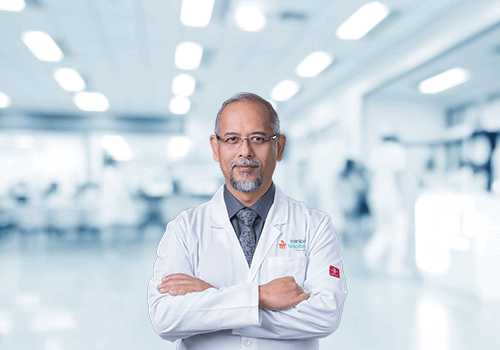
Treating Doctor
Dr. Sanjay Gogoi
Urologist- Renal Transplant, Congenital Disorders Evaluation / Treatment, Fitsula treatment, Urogynaecology, Transurethral resection prostate surgery (TURP), Robotic urological surgery
Max Super Speciality Hospital, Dwarka New Delhi, India
24 Years of Experience
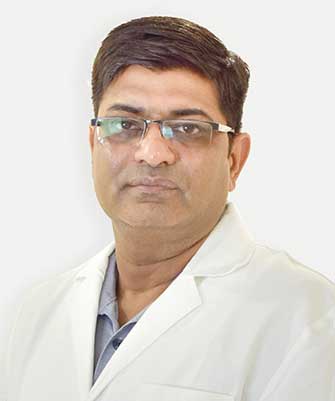
Treating Doctor
Dr. Amit Kumar
Nephrologist- Kidney Transplant, Kidney Stone Specialist, Kidney Biopsy, Nephrectomy, Peritoneal Dialysis, Hemodialysis
Shalby Sanar International Hospital Gurgaon, India
24 Years of Experience

Treating Doctor
Dr. Ashwini Goel
Nephrologist- Kidney Stones Treatment, Chronic Kidney Disease ( CKD ), Kidney Failure, Hemodialysis, Minimal Invasive nephron- sparing renal surgery, URS, Laparoscopic nephrectomy
BLK-Max Super Speciality Hospital New Delhi, India
35 Years of Experience

Treating Doctor
Dr. Anil Mandhani
Urologist- Kidney Specialist, Urinary bladder Cancer, Robotic Reconstructive Surgery, Complex Cancer Surgery, Advance Robotic Surgery in Prostate, Redo Surgery in Urology, Single Stage Kidney Transplant
Fortis Memorial Research Institute Gurgaon, India
31 Years of Experience

Treating Doctor
Dr. Lakshmi Kant Tripathi
Nephrologist- Kidney Stone Treatment, Chronic kidney disease, Polycystic Kidney disease, Kidney Cancer, Shrunken Kidney, Glomerulonephritis, Kidney Failure, End-Stage Renal Disease, Symptomatic Hydronephrosis, Chronic Kidney Infection, Acute Kidney Injury & Glomerular Diseases
Artemis Hospitals Gurgaon, India
27 Years of Experience
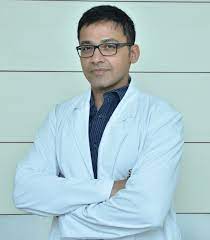
Treating Doctor
Dr. Gautam Banga
Urologist- Complex Reconstructive Surgery, Penile Augmentation/ lengthening/Hypospadias repair, Penis Pain, Erectile Dysfunction, Urethral reconstruction, Penile implants
SCI International Hospital New Delhi, India
17 Years of Experience
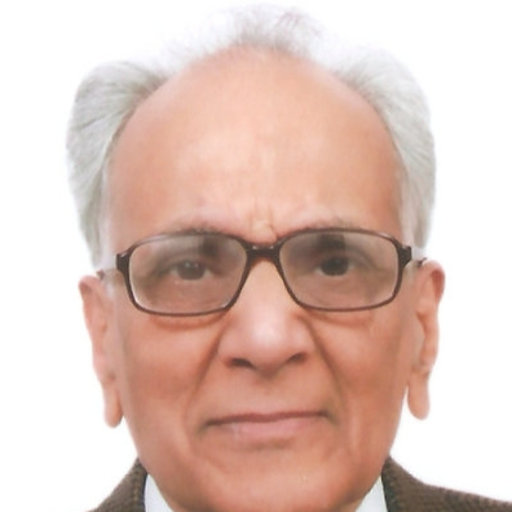
Treating Doctor
Dr. Rajendra Srivastava
Paediatric nephrologist- Paediatric Nephrologist
Indraprastha Apollo Hospitals, New Delhi New Delhi, India
57 Years of Experience

Treating Doctor
Dr Dushyant Nadar
Urologist- Gallbladder Stone, HIV Specialist, Urine Leakage, Blood in Urine, Urine Stone, Male Infertility, Urinary Tract /Bladder Stones Treatment, Urinary incontinence problem, UTI Treatment, Male Infertility, Hydrocele Testis treatment, Erectile Dysfunction, Urethral reconstruction, Benign Prostatic Hyperplasia
Fortis Hospital Noida Noida, India
22 Years of Experience

